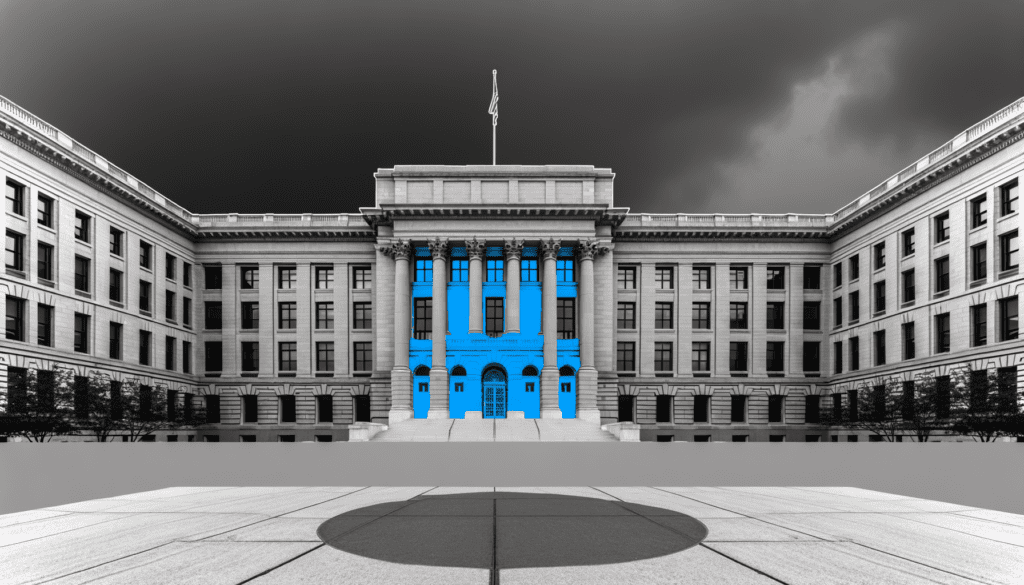Dismantling Accountability Measures
In an unsettling shift, the Trump Administration has moved to scale back the Justice Department’s Public Integrity Section, a major component of federal efforts to fight corruption in politics and governance. This unit, which traces its origin to the Watergate scandal, once stood as a crucial bulwark against voter fraud, ethics violations, and corruption committed by public officials—responsibilities at the essence of preserving the integrity of our democracy.
Previously staffed by roughly 30 dedicated attorneys specializing in investigating and prosecuting corruption, the newly announced policy could see as few as five lawyers left in their roles—a reduction so extreme it borders on functional elimination. Cases previously managed at the centralized Washington office will now reportedly disperse nationally, handed off to U.S. Attorneys’ offices. The implications of such a decentralization are profound, potentially diluting expert oversight.
Curtailing Independence, Threatening Justice
For those familiar with the steadfast reputation the Public Integrity Section has earned since its creation, these sweeping changes are troubling. David Laufman, a respected former Justice Department official, openly voiced concerns, asserting, “The only reasonable interpretation of this extraordinary action is the administration wants to shift prosecutions of public corruption from career attorneys to partisan appointees.”
Running parallel to this downgrading is a recent high-voltage controversy: the order by a top Justice Department official to drop corruption charges against New York Mayor Eric Adams. This move starkly reveals an alarming precedent and appears part of a disturbing, broader trend under the administration to weaken transparency and accountability mechanisms. Indeed, the sudden departure of the section’s top supervisors, amid protests over the Adams ruling, underscores an escalating decay in nonpartisan judicial procedures.
Experts warn that by relinquishing hands-on oversight from dedicated lifetime attorneys to political appointees in Attorney offices across the country, the Trump Administration risks deeply politicizing federal corruption cases. It becomes far more plausible that future prosecutions or investigations might be led by partisan considerations, rather than a stable, neutral commitment to public integrity.
A Broader Erosion of Ethics Standards
Conservative proponents of the changes cite efficiency and resource management as motivations for disempowering this unit. But one can’t overlook indicators that the restructuring aligns with an aggressive policy orientation empowering political considerations to interject forthrightly into judicial processes.
This dramatic restructuring dovetails with the Administration’s past efforts to sideline certain accountability mechanisms. Historically vital procedures—for example, laws and policies targeting the bribery of foreign governments—have seen their enforcement arguably stalled or sidelined. It’s part of what many analysts believe exemplifies the concerning trajectory mapped by an administration prioritizing immediate political interests over integrity and fairness.
From obstructed investigations and selective application of legal authority, the evidence accumulates, casting worrying shadows on legitimacy. Such coercion undermines public confidence in justice and deters fairness, essential attributes for any functioning democracy.
“Without impartial oversight and independence, our system stands vulnerable—not merely to individual corruption, but to systemic failure undermining essential American values,” argued one democracy advocate.
In the twilight moments of the administration, this radical scaling back could serve as a testament of disregard for long-standing judicial accountability and could jeopardize future governmental integrity large-scale. Each suppressed corruption prosecution or under-investigated controversy further corrodes public trust in governance institutions already imperiled by sustained attacks from within.
However troubling, these developments are also a call to progressive action. As advocates, watchdogs, and engaged citizens, acknowledging the urgency to reinforce public integrity initiatives becomes crucial. Attorney General Merrick Garland, under the new administration, will hold the responsibility to assess the ramifications of these decisions closely—ideally restoring clarity in distinguishing justice from ideology, safeguarding our democratic institutions meaningfully. The dismantlement of America’s Public Integrity Section isn’t just about shifting workloads or managing bureaucratic efficiency: more alarmingly, it’s about the ethical heartbeat of American trust in our legal institutions.
Across America, vigilance and resistance against such erosion remain our collective duty. This country’s guiding principles rest upon justice served impartially, safeguarded by unwavering oversight immune from political winds. After all, the fight against corruption isn’t merely policy—it’s moral clarity navigating governance. Our shared responsibility now demands rallied support to protect and revitalize the integrity committed professionals have upheld for decades.

